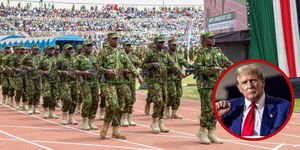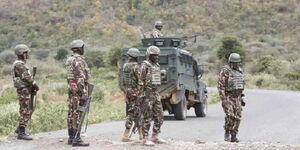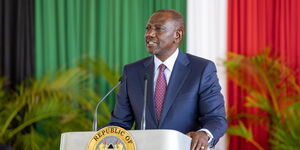The government will have sweeping powers to listen to calls and read emails of Kenyans who will be conducting unexplained large transactions.
Parliament's Finance Committee has proposed the bugging of private communications of people suspected of money laundering or financing terrorism in a raft of changes to the Anti-Money Laundering and Combating of Terrorism Financing Laws Amendment Bill, 2023.
In the new changes, MPs want government agencies to access emails, listen to phone calls and read text messages of suspects to monitor the flow of large money movements.
The Amendment Bill was approved by Cabinet last month in a meeting held at State House, Nairobi and is expected to help Kenya combat money laundering and terrorism financing.
In recent years, large cash seizures at the country's main points of entry and unexplained outsize transactions in banks have raised alarm over dirty cash movement.
Some of the cases including money laundering charges against Nigerians and other foreigners have collapsed due to insufficient evidence.
“Where a person is suspected or accused of an offence under this Act, the privacy of a person’s communications may be investigated or otherwise interfered with,” the committee proposed.
Currently, state agencies like the Directorate of Criminal Investigations (DCI) and the police have access to phone records and text messages which have been used to nail some suspects involved in various crimes.
The move could raise privacy issues as state operatives could misuse the access to Kenyans' private communication.
This amendment comes less than a week after the Kenya Bankers Association (KBA) pleaded with the Parliament to tighten the belt on money launderers.
KBA had argued that Kenya’s geographical location made it vulnerable to criminals laundering money to finance terror activities, opposing the move to increase the transaction reporting threshold.
Ruto’s cabinet had increased the threshold of large transactions reporting from $10,000 [Ksh1.4 million] to $15,000 [Ksh2.1 million].












